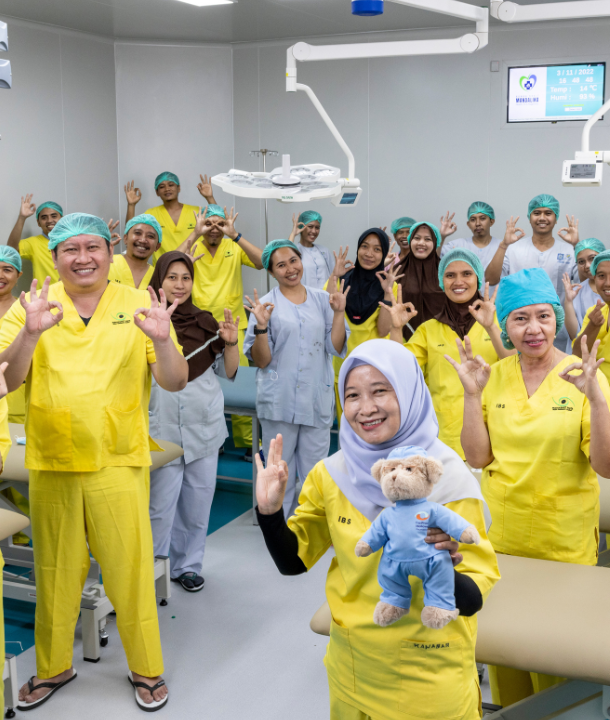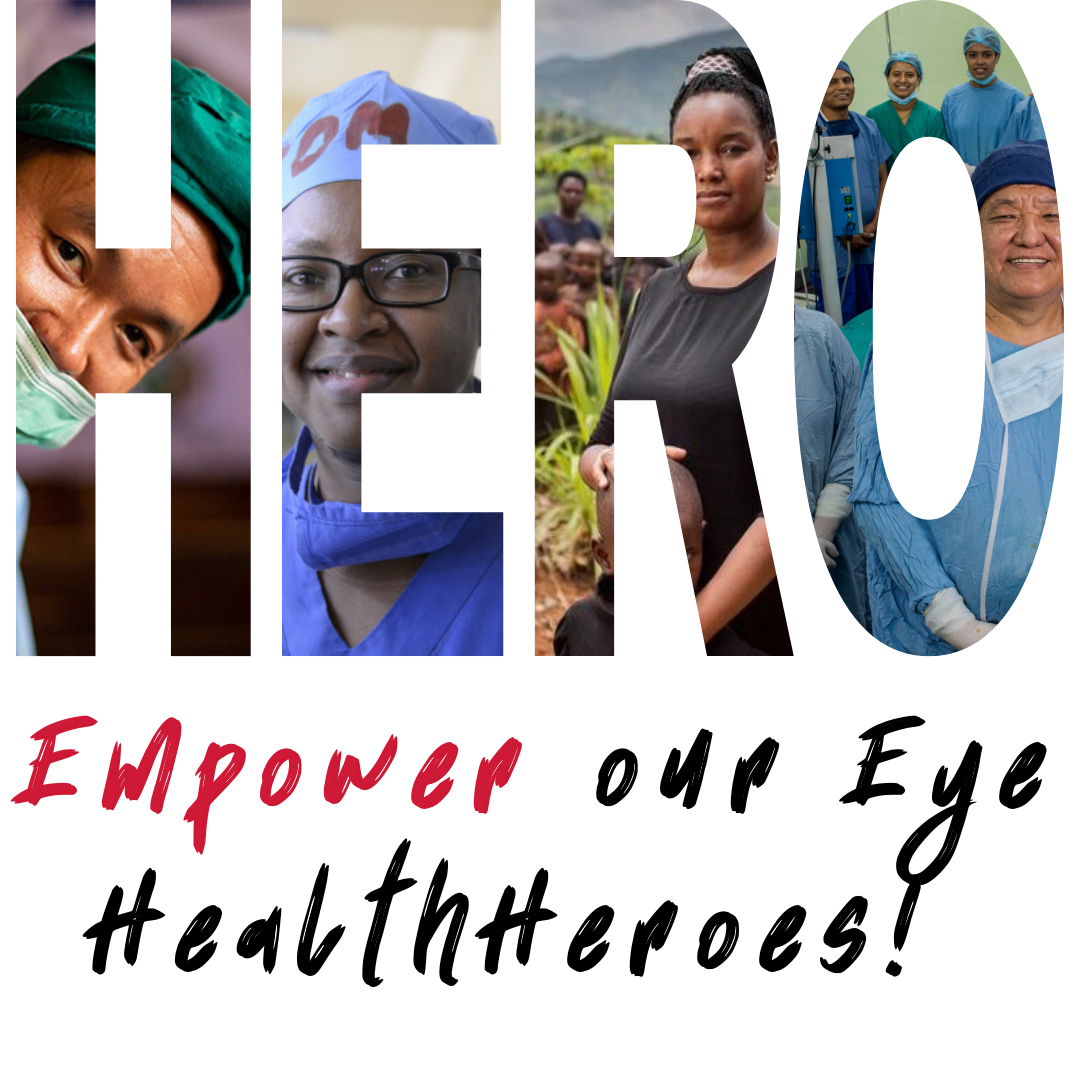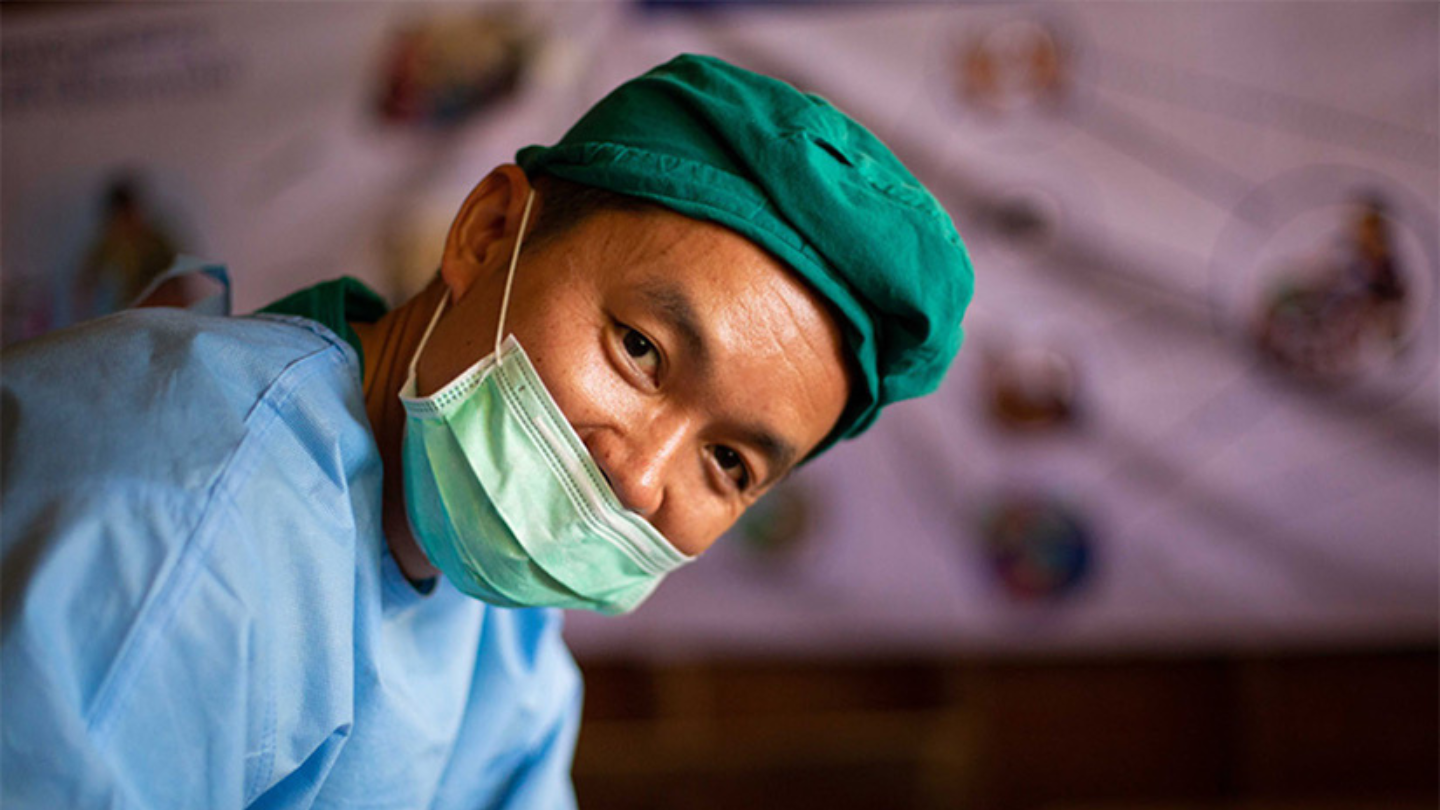
➀ Dr. Phetsamone: "The alternative is to do nothing which is not an alternative."
Dr Phetsamone has been taking care of his blind grandmother since childhood, which planted the seed for his future as a doctor. He became the first cataract surgeon trained by The Fred Hollows Foundation in Laos. Dr Phetsamone is an extraordinary doctor who always responds with an "I can do it" attitude and carries a radiant smile as he performs surgeries, bringing light to the needlessly blind.
In remote areas where we provide sight-restoring services, access to basic resources such as electricity is extremely important. In cases where there is no electricity, Dr Phetsamone transforms into an automotive mechanic, removing batteries from cars to power the surgical equipment.
In remote areas...
In remote areas where we provide sight-restoring services, access to basic resources such as electricity is extremely important. In cases where there is no electricity, Dr Phetsamone transforms into an automotive mechanic, removing batteries from cars to power the surgical equipment. Dr Phetsamone is the first cataract surgeon trained by The Fred Hollows Foundation in Laos. Despite limited resources and inadequate electricity, he sees no obstacles.
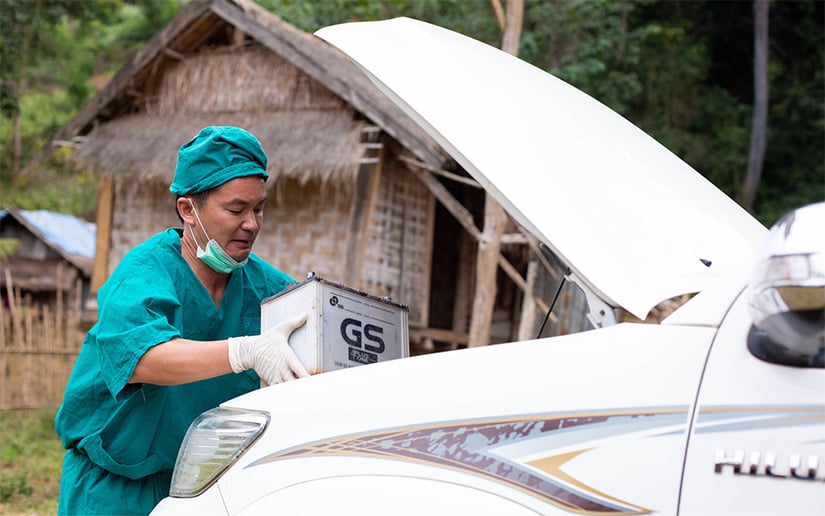
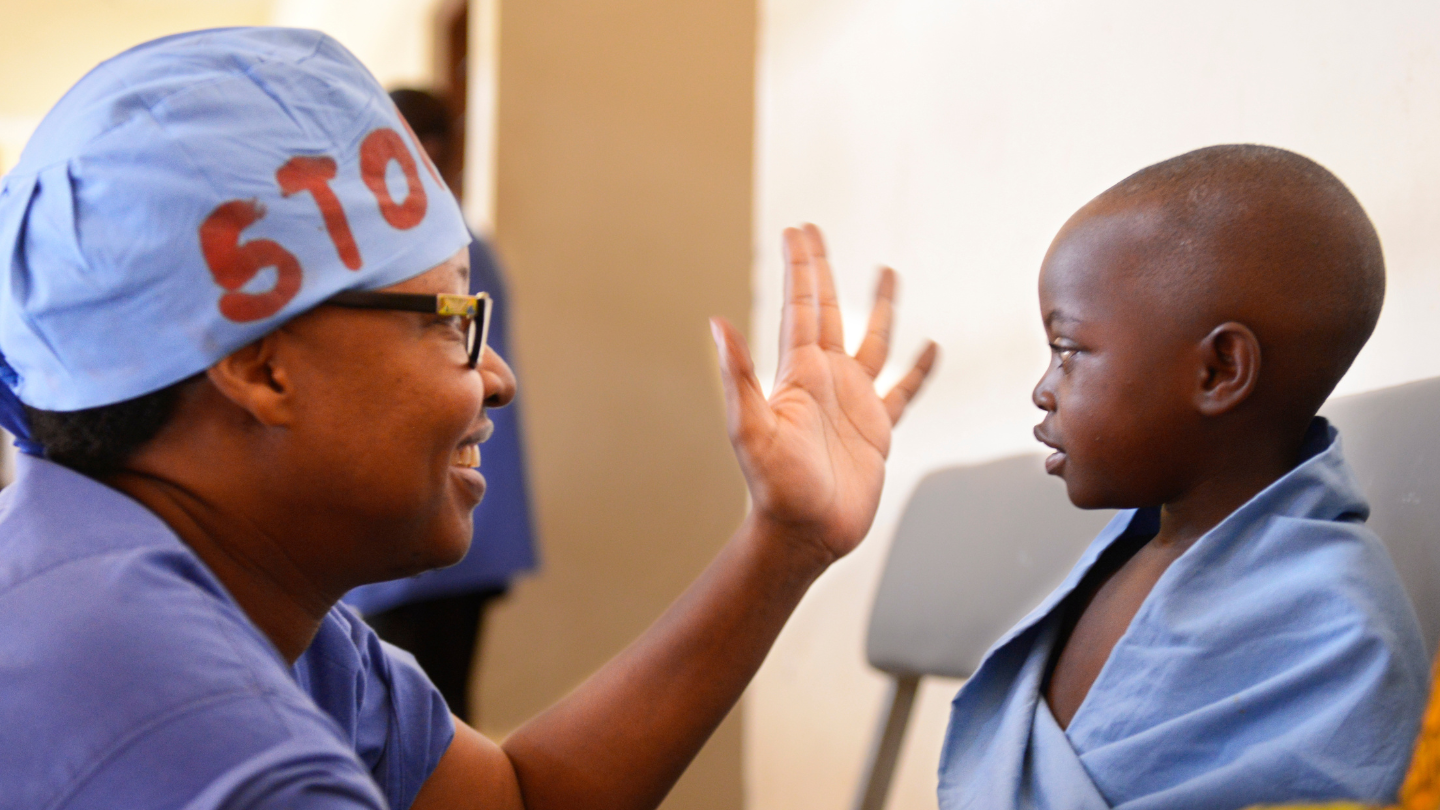
➁ Dr. Levi: He told me he had the best time of his life helping his hometown and feeling useful to his community.
Dr Levi decided to leave the comforts of living in France and return home in 2006 to a country suffering the aftershock of civil war. Burundi has abundant natural beauty, but behind the lush greenery and jagged mountain peaks is severely damaged infrastructure and a collapsed healthcare system. At the point Levi returned, all eye surgery was done by visiting ophthalmologists.
Eyesight makes a huge difference to health outcomes and is especially vital for those who are poverty-stricken. What many people don’t realise is that cataract in adults is different to cataract in children. The brain develops visual pathways in our early years, and if a child cannot see before the age of 10, these pathways don’t develop, leading to permanent blindness. Another complicating factor is that treatment for children is more complicated and expensive than for adults.
Three years old is too late...but
There are striking similarities between Levi and Fred Hollows, founder of The Foundation: both men were talented surgeons who had a strong sense of social justice, and both men were wholeheartedly dedicated to a cause they believed in. The Fred Hollows Foundation provided significant support in terms of training and equipment. Levi has worked with The Fred Hollows Foundation for many years. The financial support he receives has helped him save the sight of children in need.
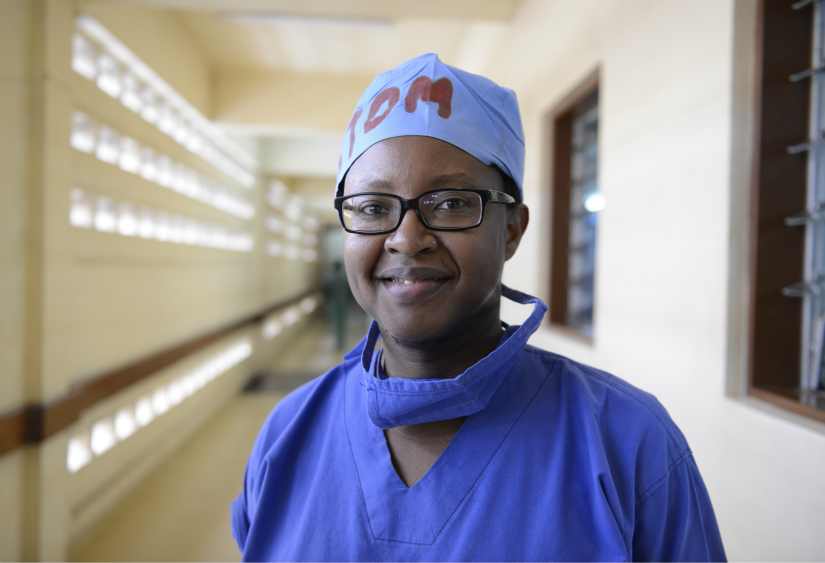
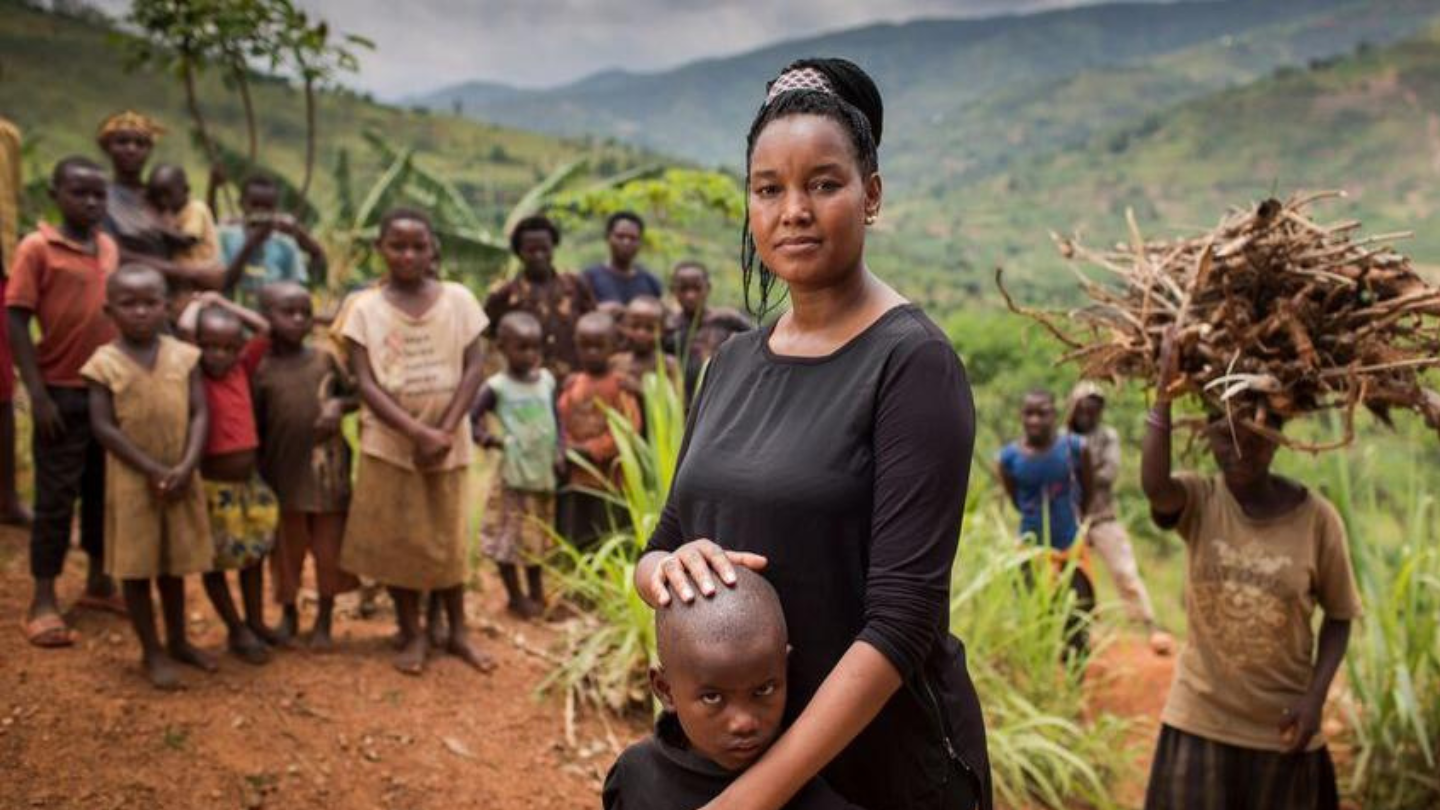
➂ Dr. Ciku: The Troubles of Kenya's First Female Ophthalmologist
Dr Ciku, the first female ophthalmologist trained by The Fred Hollows Foundation in Africa, may find that her job as an eye doctor is not the most challenging part of her work. But rather it is the difficulty of explaining to patients that she is a female doctor.
She says, "After some patients undergo surgery and remove their eye patches, they ask me to thank the doctor on their behalf. When I tell them that I am the doctor, it becomes a funny and heartwarming moment. But Dr Ciku also deeply understands how important her work is. She believes that training female medical professionals can help female patients feel more at ease.
It's truly miraculous.
Dr Ciku has restored sight to thousands of people. When she first graduated, she learned how to treat cataracts with intraocular lens under the guidance of the medical director of The Fred Hollows Foundation at the time. This was a groundbreaking technique at the time, and it was not expensive, benefiting many cataract patients.
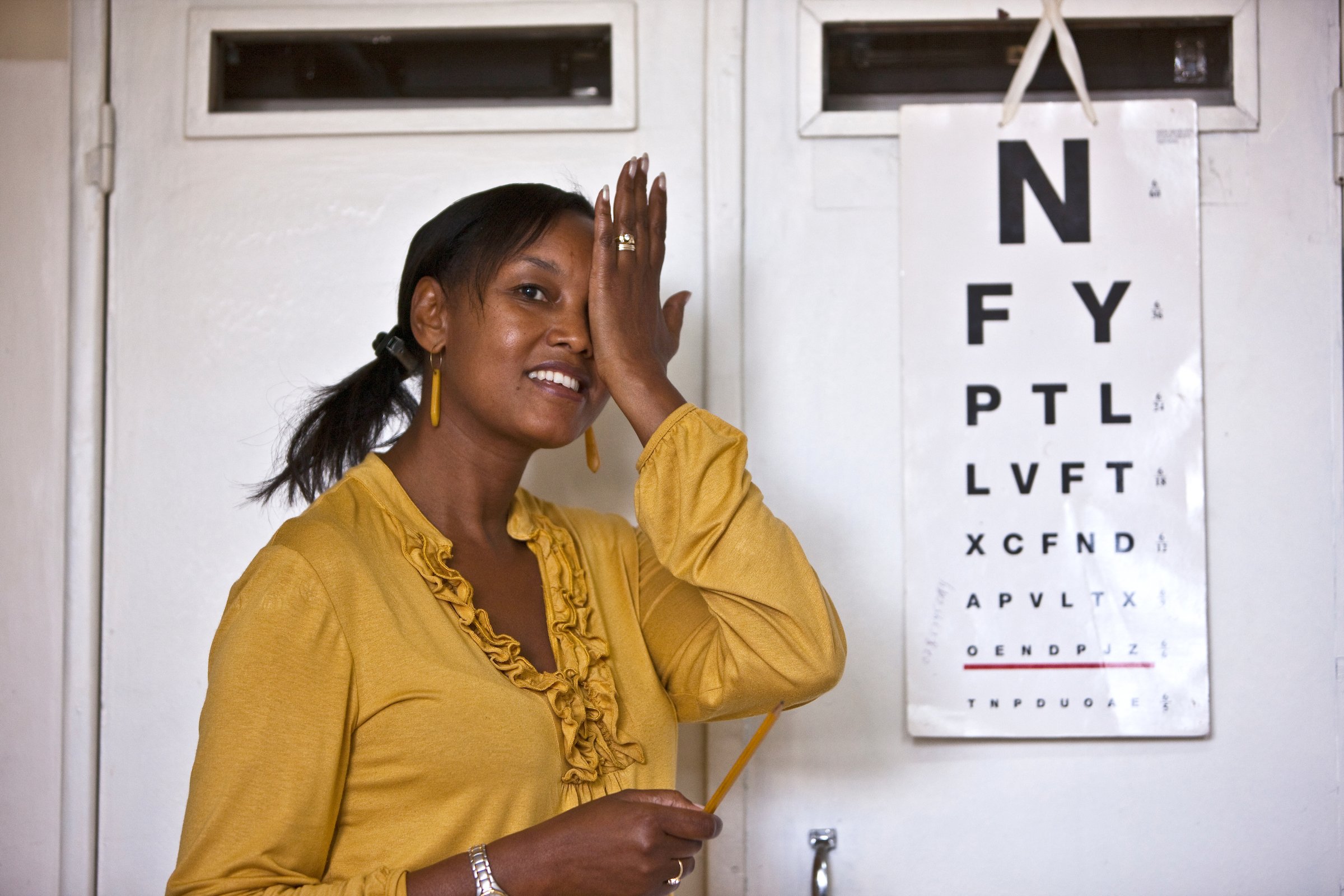
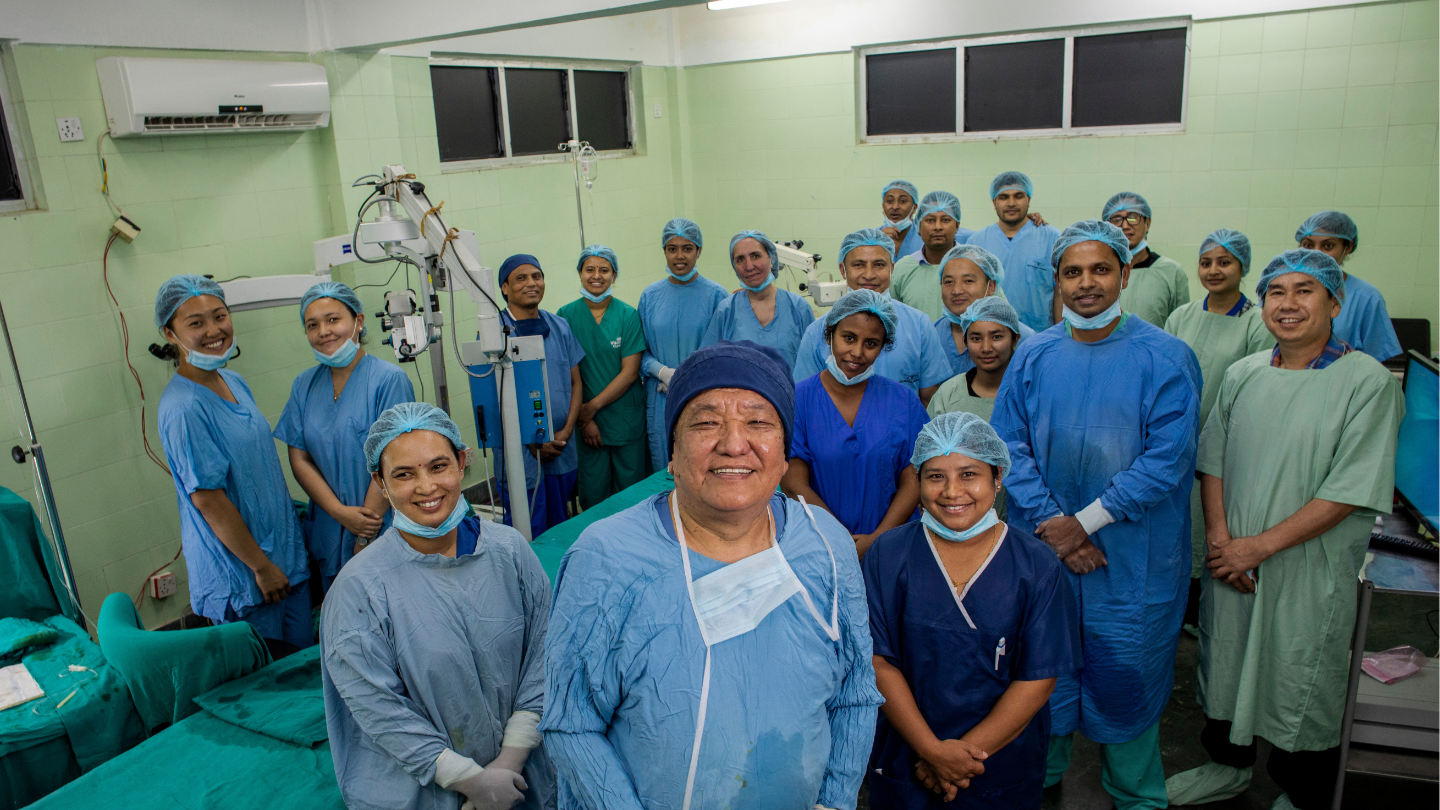
➃ The Healing Hands of 120,000 Surgeries
In the 1980s, Dr Ruit conducted a blindness survey in Nepal, where he met Professor Fred Hollows, the founder of The Fred Hollows Foundation. They became fast friends and Fred soon became his mentor. They joined hands to bring affordable eye care services to the people of Nepal and other developing countries. Dr Ruit is a master of ophthalmic surgery, capable of completing a cataract surgery in just five minutes.
"They became fast friends and Fred soon became his mentor."
Due to the shortage of personnel, patients often have to wait long periods of time to receive a simple cataract surgery, and many are unaware that their sight could be restored. In the 1980s, he joined forces with Professor Fred Hollows to change the ophthalmic world. Together, they worked towards their shared dream of establishing affordable ophthalmic medical services and empowering ophthalmologists, as it ties in directly with what Fred believed in: train one surgeon and they’ll train hundreds more.
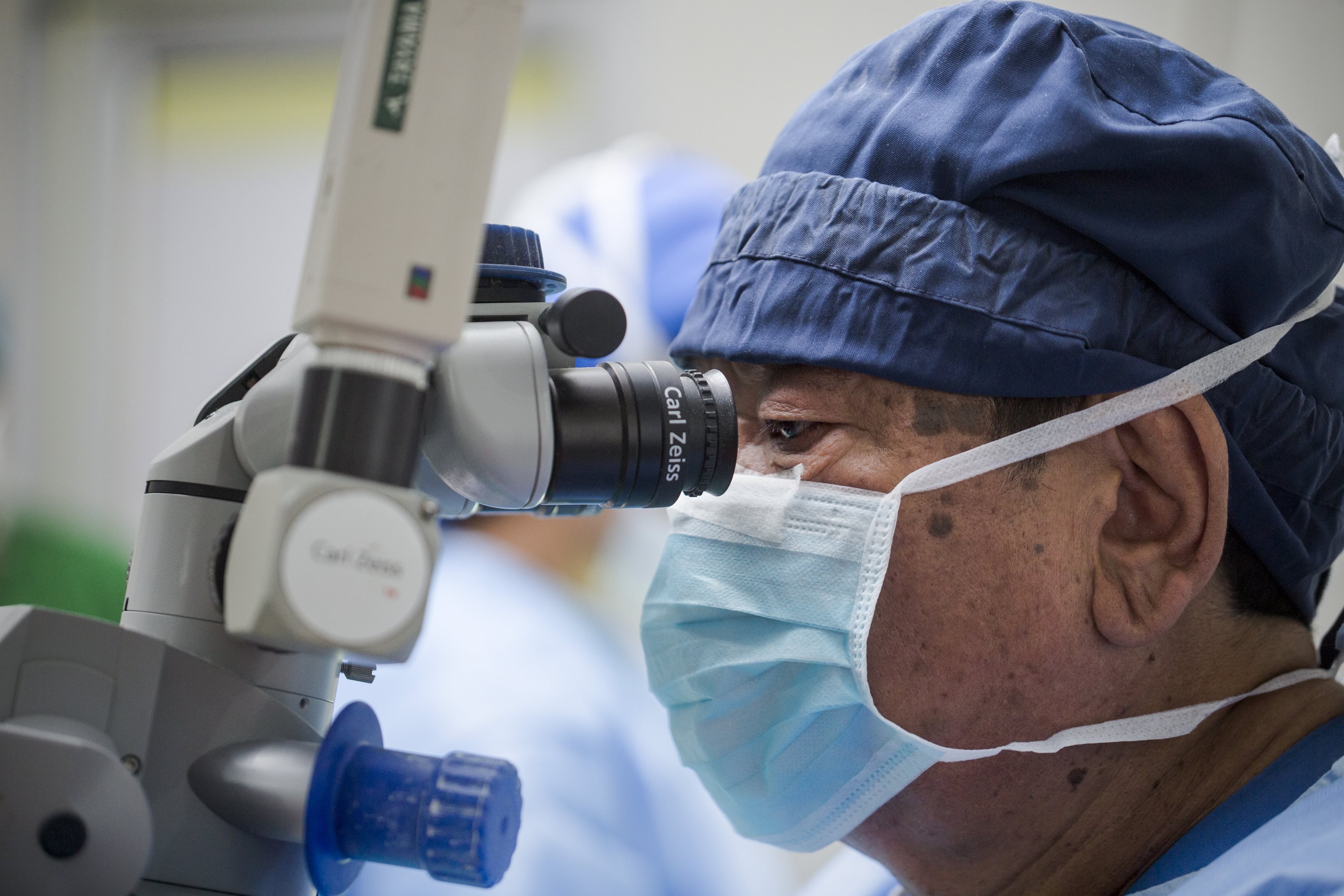
Ending avoidable blindness
"One of the great joys of my life is having been part of the training of Sanduk Ruit and his training others." - Fred Hollows
The Founder of The Fred Hollows Foundation, Prof. Fred Hollows believed in empowering people. That’s why we invest in training a range of people from community health workers to surgeons. Building local skills has always, and will always, be at the heart of our work.
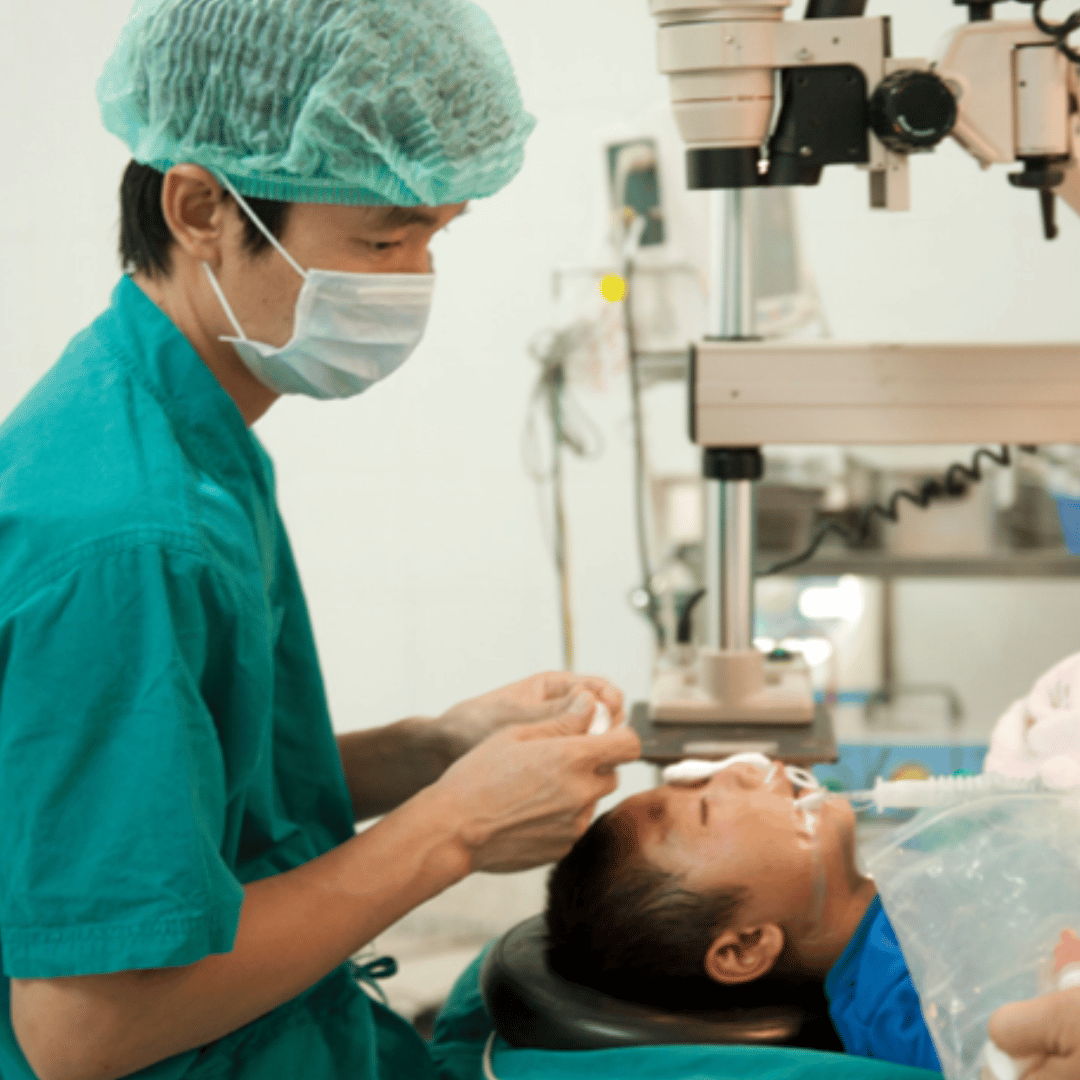
Training
Fred believed that training and empowering local people was the key to sustainable change. The Foundation trains doctors, nurses and health care workers so they can recognise, diagnose, refer and treat eye problems in their communities.
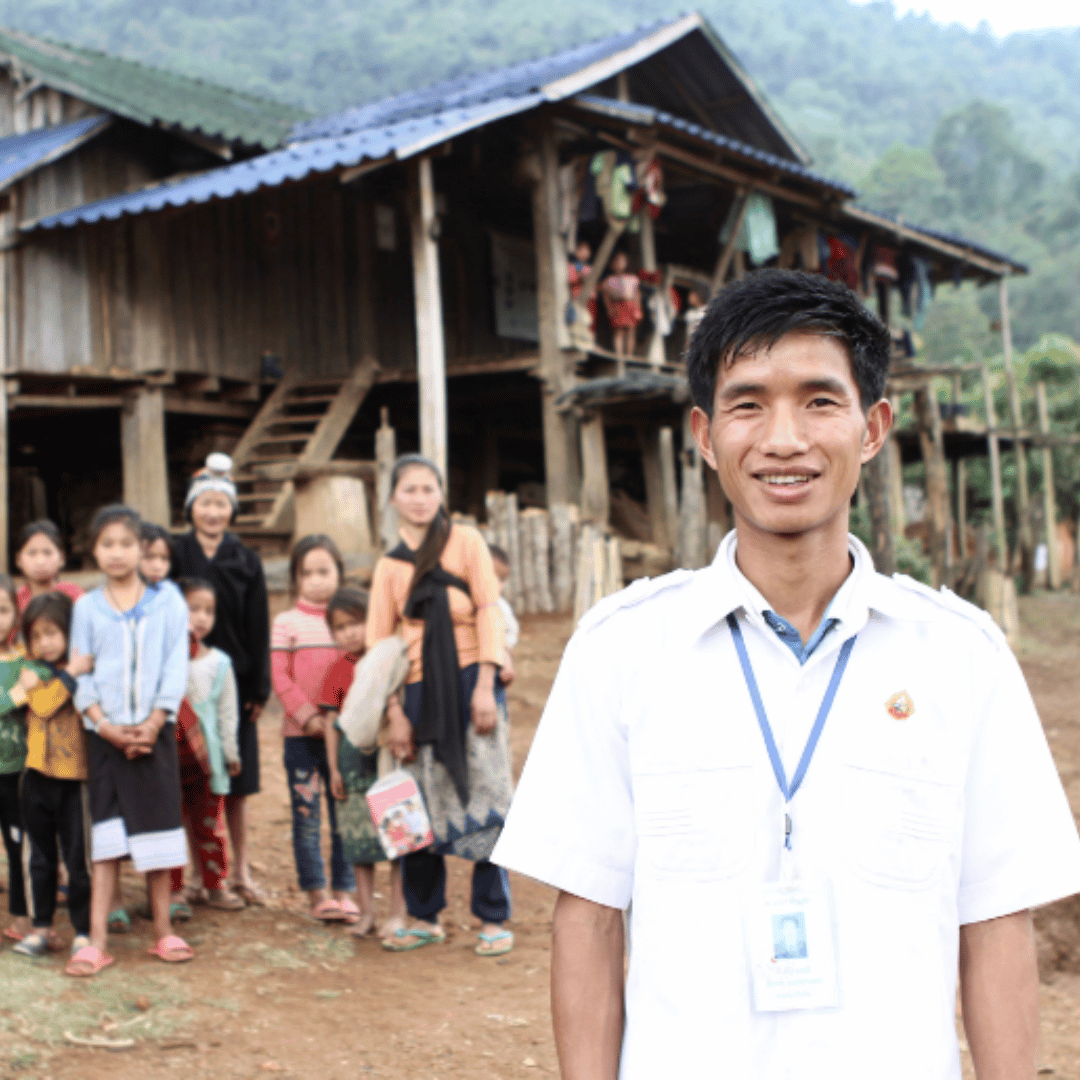
Doorstep diagnosis
Community health workers are a vital link between patients and eye health services. Trained by The Foundation, they visit communities, diagnosing a range of medical conditions and referring people to medical clinics, hospitals and doctors. Performing initial consultations like these is essential, because potentially damaging eye health issues are identified before they become critical.
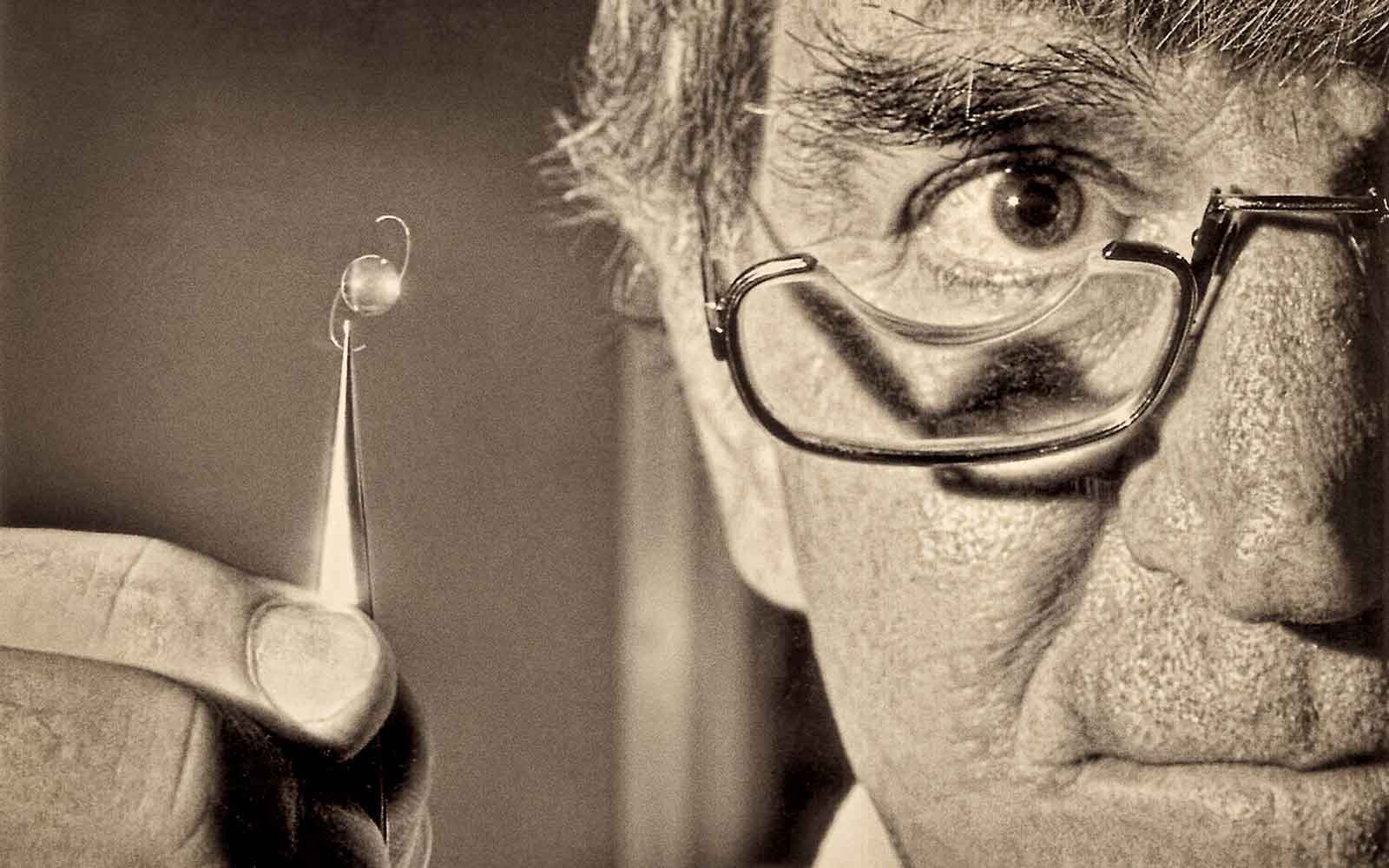
Fred’s passion for teaching
Fred was an advocate of hands on learning. He firmly believed there should always be three people in a room: a teacher, a student and a patient. Whether it was in an operating theatre in Sydney or Hanoi, Fred took great delight in seeing the moment of understanding in his students’ eyes.
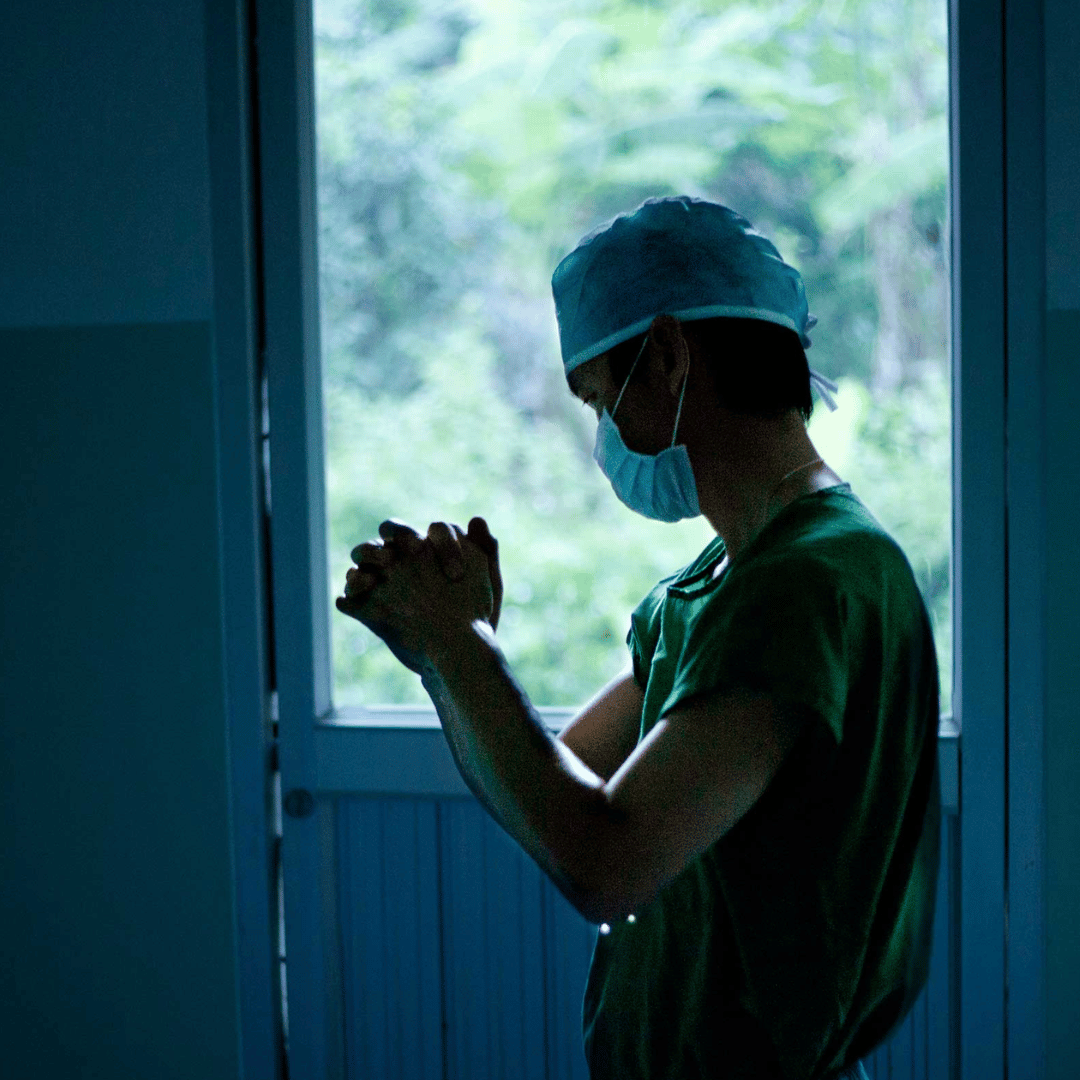
The last lesson
Despite being very ill with cancer, Fred discharged himself from hospital in July 1992 to fly to Hanoi. There he wanted to fulfil his promise to train over 300 Vietnamese eye specialists in modern eye surgery techniques.

WHAT IMPACT CAN YOUR DONATION BRING?
WHAT IMPACT CAN YOUR DONATION BRING?
A Blindness and vision impairment is a health issue, and related to a person's well-being, quality of life and development opportunities. The Fred Hollows Foundation believes that a fly-in-fly-out model is not the best way to develop a place’s eye health care. Our vision is to build sustainable, good quality and affordable eye care in remote areas of the world.
Your donation will be used to:
- Train surgeons or eye health workers
- Provide medical equipment
- Organize eye screening camps in remote areas
- Raise awareness of eye health to the public
- Invest in innovation and research
Together, we can do this
We know how to help, but there’s a lot of work still to be done across the world. Eliminating avoidable blindness can be achieved – with the help of our partners and, most importantly, you, our incredible supporters.
The Fred Hollows Foundation's work will help build the local capacity of eye health in remote areas. Doctors, nurses and community eye care staff can identify, diagnose, refer and treat various eye diseases on time in the community.
The Fred Hollows Foundation believes that a fly-in-fly-out model is not the best way to develop a place’s eye health care. Our aim is to build a sustainable eye health workforce in remote areas to help people have their sight restored.
Thank you very much for your donation! Monthly donation receipts will be mailed to your mailing address every April. If you have any questions, please feel free to contact us.
